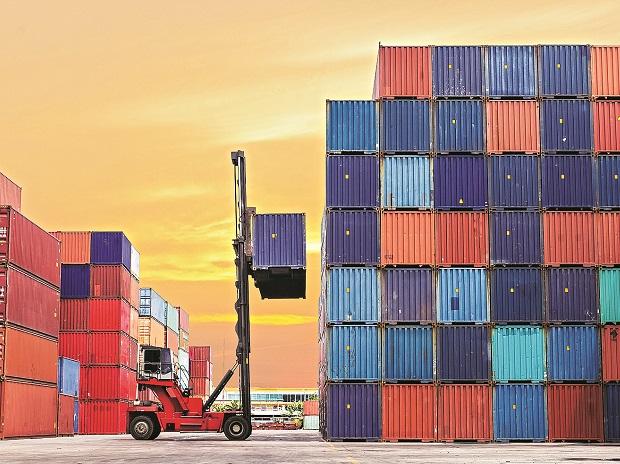The September revival in exports proved a blip with outbound shipments contracting for the second straight month in November. Exports fell sharper at 8.7 per cent in November than 5.1 per cent in October, as major overseas markets continued to witness muted demand due to Covid-induced lockdowns.
Exports stood at $23.52 billion in November compared to $25.77 billion in the same month of the last year.
Experts have mixed views on exports in the coming months.
On the other hand, imports fell 13.32 per cent to $33.39 billion in November. This led to a 10-month high trade deficit of $9.87 billion.
Within imports, non-oil non-gold imports came down by 1.67 per cent at $24.10 billion in November. The rate of fall shrank from around 5 per cent in October. This raised a ray of hope for better industrial production numbers in November. The index of industrial production (IIP) rose for the second month in a row at 3.6 per cent in October.
However, experts believed that these imports showed slow deceleration in November due to festivals, besides uptick in commodity rates.
"The contraction in non oil non gold imports narrowed in November 2020, reflecting the tentative pickup in demand during the festive season, as well as a rise in commodity prices," Aditi Nayar, principal economist at ICRA said.
Major exchange earners showed de-growth in November. For instance, petroleum products recorded a decline of 59.73 per cent, engineering goods fell by 8.12 per cent. Even labour intensive items such as leather and its products shrank by 29.8 per cent, readymade garments by two per cent.
On the other hand, pharmaceuticals exports rose 11.15 per cent, gems and jewellery by 4.1 per cent and electronics goods by 0.97 per cent.
Nayar said the slide in non-oil export growth was led by renewed restrictions in trading partners, that outweighed the optimism related to an early availability of Covid-19 vaccines. "This trend may continue in the winter months, before an uptrend takes root in Q4, FY21," she said.
However, EXIM Bank chief general manager Prahalathan Iyer said the Christmas and New Year seasons demand from the key export markets might bring some positivity in export growth in December.
Exporters body FIEO president Sharad Kumar Saraf urged the government to address key issues such as adequate availability of containers, softening of freight charges, the release of the required MEIS benefits, resolving risky exporters issues and immediate introduction of RoDTEP across all sectors.
Engineering exporters body EEPC India chairman Mahesh Desai said close to a nine per cent decline in exports is a reminder to act fast and reverse declaration. "Exporters need to be empowered by way of faster refund of GST and availability of raw material," he said.
Among imports, crude and petroleum products shed 43.36 per cent, transport equipment, 19.62 per cent, machinery, electrical and non-electrical, 13.37 per cent, coal and related products, 12.15 per cent and pearls, precious and semi-precious stones, 7.16 per cent.
Exports declined 17.76 per cent to $173.66 billion in the first eight months of the current financial year, while imports fell 33.55 per cent at $215.69 billion. Trade deficit stood at $42.03 billion, lower by around 63 per cent over $113.42 billion a year ago.
Meanwhile, service exports declined 6.3 per cent to $16.58 billion in October, while imports fell 12.33 per cent to $9.53 billion. This resulted in a $7.06 billion service trade surplus.
Nayar said, "As domestic recovery strengthens, we expect the current account surplus to decline substantially in Q3 FY2021 and Q4 FY21. Overall, Icra sees India’s current account balance posting a sizable surplus of $35-40 billion or about 1.5 per cent of GDP in FY21, in contrast to the deficit of $25 billion (0.9 per cent of GDP) in FY20."
 Dear Reader,
Dear Reader,
Business Standard has always strived hard to provide up-to-date information and commentary on developments that are of interest to you and have wider political and economic implications for the country and the world. Your encouragement and constant feedback on how to improve our offering have only made our resolve and commitment to these ideals stronger. Even during these difficult times arising out of Covid-19, we continue to remain committed to keeping you informed and updated with credible news, authoritative views and incisive commentary on topical issues of relevance.
We, however, have a request.
As we battle the economic impact of the pandemic, we need your support even more, so that we can continue to offer you more quality content. Our subscription model has seen an encouraging response from many of you, who have subscribed to our online content. More subscription to our online content can only help us achieve the goals of offering you even better and more relevant content. We believe in free, fair and credible journalism. Your support through more subscriptions can help us practise the journalism to which we are committed.
Support quality journalism and subscribe to Business Standard.
Digital Editor

RECOMMENDED FOR YOU